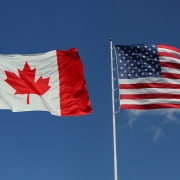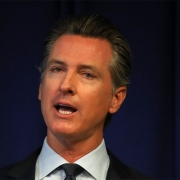North America Has An Opportunity to Lead the World
For generations, pundits the world over have insisted that the future will be forged elsewhere — Europe for some, Japan for others and, more recently, China. Yet, in reality, the United States and Canada may well be best positioned for a changing world, if our leaders can leverage our natural advantages.
In a world that’s increasingly mean-spirited, military and economic power and the stability of institutions matter more than good intentions. The Russian invasion of Ukraine has demonstrated that, “The old Davos glory days are certainly gone,” as former Swedish prime minister Carl Bildt noted. Realpolitik in the 21st century favours, as is usually the case, the strong and resourceful.
Let’s start with natural advantages. Despite the protestations of our cognitive elites, fossil fuels are not going away; indeed, they still account for the vast majority of all power generation, and will do so for some time to come. Together, the U.S. and Canada produce twice as much oil as either Russia or Saudi Arabia, and even more so if Mexico is included.
Even as we gradually shift away from fossil fuels, in this transition period, it makes little sense to allow the authoritarian powers to control oil markets, or power their economies, as does China, by emitting more greenhouse gasses than the entire developed world put together.
Much the same can be said about food supplies. Our countries together boast the largest supply of arable land on the planet. The Ukraine War revealed the fragility of food markets, as it has done with energy. Right now, we stand as leading food exporters; climate-inspired rules that undermine our agriculture, which are now being discussed, comes at a very perilous time. Critically, our two countries also possess the second-largest freshwater reserves in the world, just behind Brazil.
Overall, natural resources account for more than half of Canada’s exports and almost 20 per cent of those of the U.S. Canada leads the world in potash exports and stands in the top three in such minerals as uranium, diamonds and platinum. Taken together, North America’s resource base represents a particular threat to Russia’s expansionism, which relies on that country’s energy and mineral sectors.
But perhaps even more important may be the political factors, including our nations’ increasing diversity. Immigration — the U.S. and Canada together have more foreign-born people than the next five countries combined — represents the one tool higher-income countries have to address their demographic shortfall, a step that few of our main competitors seem likely to take.
Chinese President Xi Jinping may offer global pre-eminence and “the Chinese dream,” but the number of Chinese immigrants living in America has doubled since 2000, to around 2.5 million, while in Canada, Chinese immigration is at a peak, with nearly two-million people of Chinese descent calling Canada home.
A key attractor for immigrants lies in well-established rule of law, something not readily available in autocratic societies. The attempts in Washington and Ottawa to limit free speech and assembly have to face an independent judiciary that’s often willing to place restrictions on executive action.
Read the rest of this piece at National Post.
Joel Kotkin is the author of The Coming of Neo-Feudalism: A Warning to the Global Middle Class. He is the Roger Hobbs Presidential Fellow in Urban Futures at Chapman University and Executive Director for Urban Reform Institute. Learn more at joelkotkin.com and follow him on Twitter @joelkotkin.
Homepage photo: composite of 2 images; Steve Miller via Flickr under CC 2.0 License and OpenGridScheduler via Flickr in Public Domain.









